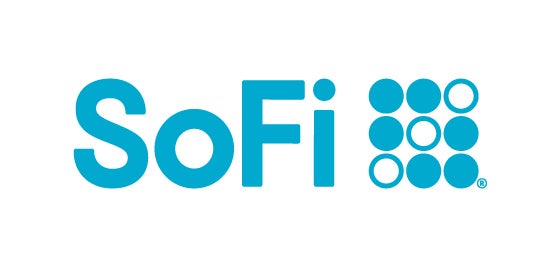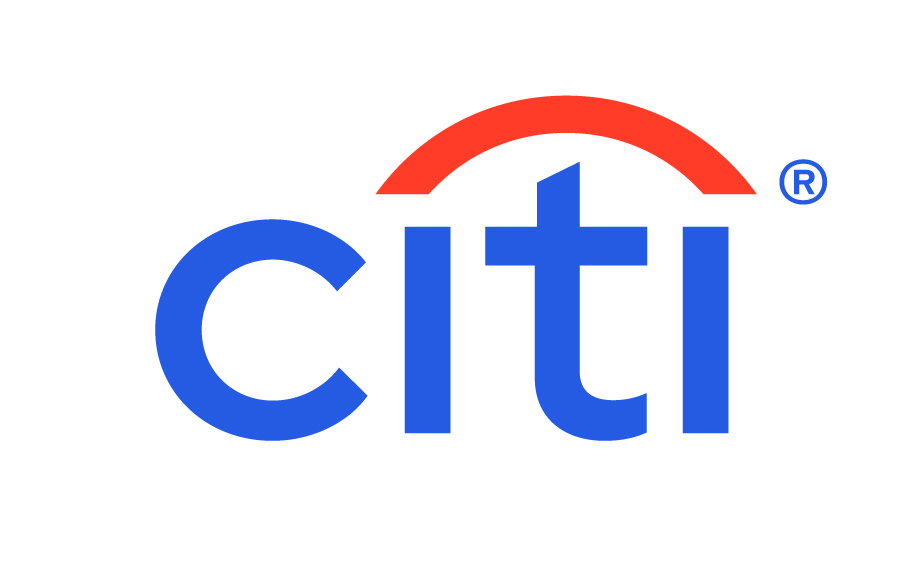Most personal loan lenders limit the amount you can borrow. It's common for lenders to offer loans up to $40,000 or $50,000, for example. While these loan limits are high enough for most people looking for financing, there may be times when you need to borrow a bigger amount.
So what should you do if you need to borrow a lot of money? First and foremost, you need to make sure you're a well-qualified borrower. You'll need a great credit score and proof you've got enough income.
You'll also need to explore different loan options for securing enough financing, including:
- Finding personal loan lenders that loan higher amounts
- Taking out multiple loans
- Taking out specific types of loans that allow you to borrow larger sums
How can you borrow a lot of money?
Your options for borrowing a lot of money vary depending on your current financial situation, the assets you own, and your qualifications. Some of the options available to you include the following.
A personal loan from a lender offering high-dollar loans
There are lenders out there that offer large personal loans. Some lenders will let you borrow up to $50,000, and a select few offer $100,000 or more. If you can find a high-dollar personal loan from a lender that will approve you, this can be the simplest way to borrow a lot of money.
TIP
When you're looking for a big loan, don't just focus on the loan amount -- also pay attention to the interest rate. You don't want to borrow a lot of money, then get stuck with a high interest rate. To get started comparing lenders, check out our expert-compiled list of best personal loan lenders.
Multiple loans
Getting multiple loans from different lenders is another option if you need to borrow a lot of money. Instead of getting one $80,000 loan, for example, you might get two $40,000 loans from different lenders.
There are a few downsides to this. First, it could be hard to qualify for the second loan. Lenders will look at your debt-to-income ratio, which is the percentage of your income that goes toward debt. Lenders typically want to see a debt-to-income ratio of 35% to 40% or less.
Getting a second personal loan could be especially difficult if you recently got approved for the first one. The second lender may be wary that you're getting in over your head if you borrowed another big sum of money recently.
Using this method also means you'll have multiple payments -- and lenders -- to deal with. This can make repayment more of a hassle.
Credit card with 0% intro period
If you need to borrow a lot of money and you're confident you can repay it within 12 to 21 months, consider a credit card with a 0% intro offer. Keep in mind, though, that taking on a credit card balance will increase your credit utilization ratio, which could lower your credit score.
Home equity loan
You may be able to qualify more easily for a larger loan that isn't a personal loan. If you're a homeowner with a lot of equity in your home, for example, you might be able to qualify for a large second mortgage or home equity loan. Or you might take on a cash-out refinance loan.
However, your ability to do this is restricted by the equity you have in your home.
Let's say you're allowed to borrow up to 80% of your home's equity. If your home is worth $300,000 and you owe $100,000 on your current mortgage, you have $200,000 in equity. You would be able to borrow $160,000, or 80% of your equity.
Related Loan Topics
Compare the best personal loans
Get the best rates and terms to fit your needs. Here are a few loans we'd like to highlight, including our award winners.
Can you qualify to borrow a lot of money?
How much personal loan you qualify for depends on a number of factors. When you borrow a large sum of money, you present a greater risk to the lender. After all, if you default on a $40,000 loan, the lender stands to lose less than if you default on a $100,000 loan. Because of the risk that high-dollar loans present, many lenders only give these loans to the most well-qualified borrowers. Research on personal loans show those with higher credit scores take out larger loans and have greater outstanding balances.
To borrow a lot of money, you'll need a very good credit score, generally defined as a FICO® score of 740 or higher. You'll also need a stable employment history and income that's high enough to make the payments.
Lenders also look at how much you make and other debts you owe. If your debt-to-income ratio is too high, lenders won't approve you.
If you cannot get approved for a large enough loan on your own, you may be able to increase your chances of getting financing by having a cosigner apply for funding with you. The cosigner's credit and income will also be considered because the cosigner shares legal responsibility. If they are well-qualified, it could improve your loan approval chances.
Final thoughts
Think carefully about whether borrowing such a substantial sum really is a good idea. After all, a larger loan means you'll have much larger monthly payments. And you'll pay a lot more in interest over the life of the loan.
Unless borrowing such a big amount is truly necessary -- and you're confident you can afford the payments on it without adversely affecting other financial goals -- you may wish to scale down your expectations and borrow less.
Still have questions?
Here are some other questions we've answered:
Looking for a personal loan but don’t know where to start? Our favorites offer quick approval and rock-bottom interest rates. Check out our list to find the best loan for you.
FAQs
-
To borrow a large sum of money, you'll need an excellent credit score, a stable employment history, and proof that you have enough income to make your payments. Having a relationship with the bank or credit union you're seeking a loan from may help. If you own a home, borrowing against your home equity may be an option.
-
While it's possible to borrow $100,000 or more if you're creditworthy, many lenders have limits of $40,000 to $50,000. The average balance on unsecured personal loans was $9,896 as of 2022.
-
Your monthly payment will depend on the annual percentage rate (APR) and the loan term. If you took out a five-year $100,000 loan at 12% APR, your monthly payment would be $2,224.44.
Our Loans Experts
We're firm believers in the Golden Rule, which is why editorial opinions are ours alone and have not been previously reviewed, approved, or endorsed by included advertisers. The Ascent does not cover all offers on the market. Editorial content from The Ascent is separate from The Motley Fool editorial content and is created by a different analyst team.
We're firm believers in the Golden Rule, which is why editorial opinions are ours alone and have not been previously reviewed, approved, or endorsed by included advertisers. The Ascent does not cover all offers on the market. Editorial content from The Ascent is separate from The Motley Fool editorial content and is created by a different analyst team.
*SoFi Personal Loan Disclaimer
Fixed rates from 8.99% APR to 29.99% APR reflect the 0.25% autopay interest rate discount and a 0.25% direct deposit interest rate discount. SoFi rate ranges are current as of 02/06/2024 and are subject to change without notice. The average of SoFi Personal Loans funded in 2022 was around $30K. Not all applicants qualify for the lowest rate. Lowest rates reserved for the most creditworthy borrowers. Your actual rate will be within the range of rates listed and will depend on the term you select, evaluation of your creditworthiness, income, and a variety of other factors.
Loan amounts range from $5,000–$100,000. The APR is the cost of credit as a yearly rate and reflects both your interest rate and an origination fee of 0%-7%, which will be deducted from any loan proceeds you receive.
Autopay: The SoFi 0.25% autopay interest rate reduction requires you to agree to make monthly principal and interest payments by an automatic monthly deduction from a savings or checking account. The benefit will discontinue and be lost for periods in which you do not pay by automatic deduction from a savings or checking account. Autopay is not required to receive a loan from SoFi.
Direct Deposit Discount: To be eligible to potentially receive an additional (0.25%) interest rate reduction for setting up direct deposit with a SoFi Checking and Savings account offered by SoFi Bank, N.A. or eligible cash management account offered by SoFi Securities, LLC (“Direct Deposit Account”), you must have an open Direct Deposit Account within 30 days of the funding of your Loan. Once eligible, you will receive this discount during periods in which you have enabled payroll direct deposits of at least $1,000/month to a Direct Deposit Account in accordance with SoFi’s reasonable procedures and requirements to be determined at SoFi’s sole discretion. This discount will be lost during periods in which SoFi determines you have turned off direct deposits to your Direct Deposit Account. You are not required to enroll in direct deposits to receive a Loan.
Impact to credit score: To check the rates and terms you may qualify for, SoFi conducts a soft credit pull that will not affect your credit score. However, if you choose a product and continue your application, we will request your full credit report from one or more consumer reporting agencies, which is considered a hard credit pull and may affect your credit.
Citi Personal Loan disclaimer:
**Rates as of 10-06-2023 . Your APR may be as low as 10.49% or as high as 19.49% for the term of your loan. The lowest rate quoted assumes excellent credit, and a loan term of 36 months or shorter. Otherwise, a higher rate will apply. For example, if you borrow $10,000 for 36 months at 15.99% APR, to repay your loan you will have to make 36 monthly payments of approximately $351.52.
There is a 0.5% APR discount if you enroll in automatic payments at loan origination. Additionally, existing Citigold and Citi Priority customers will receive a 0.25% discount to the interest rate. If you are in default, your APR may increase by 2.00%. No down payment is required. Rates subject to change without notice.
You must be at least 18 years of age (21 years of age in Puerto Rico). Co-applicants are not permitted. Loan proceeds cannot be used for post-secondary educational or business purposes.
If you apply online, you must agree to receive the loan note and all other account disclosures provided at loan origination in an electronic format and provide your signature electronically.
Credit cards issued by Citibank, N.A. or its affiliates, as well as Checking Plus and Ready Credit accounts, are not eligible for debt consolidation, and Citibank will not issue payoff checks for these accounts. If you are unsure of the issuer on the account, please visit https://www.citi.com/affiliatesproducts for a list of Citi products and affiliates.
*Upstart Loan Disclaimer
The full range of available rates varies by state. The average 3-year loan offered across all lenders using the Upstart platform will have an APR of 21.97% and 36 monthly payments of $35 per $1,000 borrowed. For example, the total cost of a $10,000 loan would be $12,646 including a $626 origination fee. APR is calculated based on 3-year rates offered in the last 1 month. There is no down payment and no prepayment penalty. Your APR will be determined based on your credit, income, and certain other information provided in your loan application.




